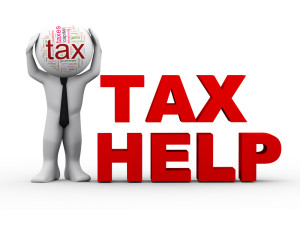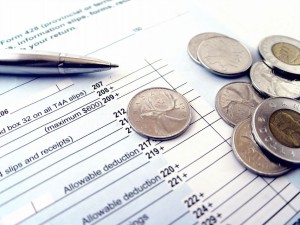Tax ReliefServices
We’ll help you put together an affordable package to get back on track with the IRS. We can help you get current with your back taxes, release IRS tax liens, bank levies, and put a stop to wage garnishments. Contact us now for a free quote!
Tax Resolution Help
Wage Garnishment Help
Tax Lien Help
What We have DoneOur Recent Success Stories
Contact us now and we’ll be happy to assess your situation and provide you with a competitive quote. We can help resolve your problems with the IRS in all 50 states. Request a quote now.
Our FeaturedTax Services
We help individuals and business with unpaid state and federal taxes. We have the resources to help with common tax problems and offer educational articles to help get you back on track.
Tax Settlement
We can help you plead your case to the IRS tax settlement department. This would enable you to pay a considerably less sum of money than you would normally pay.
Tax Payment Plans
The most common method for individuals and businesses to pay their back taxes that are owed to the IRS is through an installment agreement (IA).
IRS Financial Hardship
There are quite a few Americans struggling from back taxes and making a comeback seems highly unlikely. Luckily there are a few agreements & tax breaks available.
Remove IRS Penalties
When receiving a penalty notice, it’s the taxpayer that holds the upper hand for multiple reasons. We'll help you provide a valid argument to get the penalty removed.
File Back Taxes
There are 4 steps that you should follow when you're filing your back taxes which can be quite tricky at times. Contact us today and we'll help you get started!
Release Tax Liens
If you can’t pay the entirety of your debt in one go, then the best option for you is to make payments on an installment to release your lien. Get started now.
Back Taxes& Tax Debt Help
On this page, you’ll find a quick summary of common tax problems that arise from having unpaid back taxes. You’ll also find that we have a wide array of solutions to dealing with back taxes and tax debt.

If you have unpaid back taxes and you’re not able to pay them, don’t panic; it’s a very common thing. On average, 17-21% of the residents in the United States have unpaid back taxes and tax debt. This is such a common problem that they’re are a wide array of solutions to help you settle your tax debt.
The IRS and your local state tax board will work with your situation to make sure that you can pay your back taxes. Obviously the IRS wants to collect the maximum amount of taxes owed from you. This is good information to know because you can use this against the IRS to settle the amount owed.
The earlier you contact the IRS the better you’ll be. If you don’t pay your back taxes, the IRS will look for you, eventually find you, and take drastic action to collect as much money as they can from you.
The IRS has put together a systematic process that they make people go through to ensure that they pay their back taxes and/or tax debt. Throughout this website we’ll cover multiple ways that the IRS will attempt to collect money from you, and we’ll also discuss how you can avoid this painful process.
If you can’t afford to pay your back taxes, it doesn’t matter, you still have to pay. For people that can’t pay for their back taxes, the IRS offers payment plans to help you get current with your taxes.
The most common method to collect back taxes is to set up an affordable payment based on your income, or you can pay one large lump sum as a settlement. The payment options depend on your financial situation, but the IRS is always willing to work with you.
There are many different ways you can pay your back taxes. Contact us today and we’ll assess your situation and set up the most reasonable payment plan for you. We help most of our clients settle what they owe to the IRS for sometimes pennies on the dollars. If you think it’s impossible to pay your back taxes, call us and follow our simple steps to pay everything you owe as fast as possible.
When the IRS figures out that you owe back taxes, you’ll get entered into an automated default notice cycle. The IRS will send out letters that will tell you how much money you owe them, with the added bonus of penalties and interest.
Usually the first letter you receive from the IRS is what’s called an assessment letter. An assessment letter will tell you how much money you owe. The letter will usually be be followed by multiple notices. The letters you receive will be automated and you’ll typically get four letters from the IRS.
If you have unpaid back taxes, I can guarantee you that you’ll get these letters if you haven’t already. You have to respond to these letters or the IRS will start the collection process. Some of the letters will be a CP-501 – CP-504. Once you get a CP-504 letter, the IRS is ready to levy your account, so don’t let things get to this point.
There’s an estimated 150 tax penalties, and you can bet that the IRS can charge you with all of them. Though there are 150 penalties, the most common penalties that everybody will incur is:
- Failure to File Penalty
- Late Payment Penalty
- Penalty for Underpaying Estimated Taxes
- Substantial Understatement Penalty
- Penalty for Negligence
- Intentional Disregard
 Most of the IRS penalties are used to prompt compliance from the taxpayers. It’s a fully automated process, so the penalties incurred are automatically generated by the their software.
Most of the IRS penalties are used to prompt compliance from the taxpayers. It’s a fully automated process, so the penalties incurred are automatically generated by the their software.
With that being said, a lot of the penalties created are not always justified and some are incorrect. Even if the penalties are correct, a lot of these penalties can be waived.
When you look at your IRS assessment letter after an audit, you’ll typically see how long you owed the IRS and they’re show you how much you owe with penalties and interest included.
The IRS loves to hit people with penalties! The IRS will penalize you for many different things and the dollar amount will vary depending on what you’re getting penalized for. Below you’ll see a few additional penalties that people can incur with the IRS:
- Accuracy Penalties
- Penalties Due to Fraud
- Underpaying Taxes
- Filing Your Tax Returns Late
- Combined Penalties
So which penalty is the worst? Fraud! There are multiple types of fraud penalties, and they can be very severe. Sometimes the IRS will fine you up to 75% of the unreported amount. On top of that penalty, you’ll also have to pay interest which can be a killer.
The IRS has something called “penalty abatement.” Penalty abatement will eliminate a large portion of your penalties and sometimes all your penalties. IRS penalties account for 25 – 35% of your total tax debt amount to the IRS. We’ve dealt with some clients where 80% of the tax debt owed was mostly penalties due to fraud.
If you don’t file your taxes, it’s considered a crime and you could be fined and even put into prison in extreme situations. With that being said, you should always file your tax returns. Most people don’t get sent to jail or prison, but it’s not worth the risk.
What Else Can Happen If You Don’t File a Tax Return?
Most people look forward to getting a tax refund, but if you file your tax return, you tax return might get absorbed by the penalties. Typically you have 3 years to file your taxes and receive a refund. After the 3 year period, the IRS is not entitled to pay you anything so they won’t.
As mentioned earlier, when the 3 years are up, the IRS is no longer obligated to pay you a refund. The statute of limitations for the IRS to collect unpaid back taxes doesn’t begin until you file your taxes.
Maybe, maybe not; but most likely they will. The IRS continues to update their system to find as many delinquent taxpayers as possible.
The computers that the IRS use are good enough to track people down. Also the way people use social media today, it’s very easy to find somebody so the changes of you slipping under the radar are slim to none.
Sometimes it’ll take the IRS a 1-2 years to catch up to you, but they will. When they do finally catch up to you, you’ll be stuck with a lot of penalties and it’s just not worth it. If the IRS has finally caught up to you, then contact us today so we can fix the problem for you before it gets a lot worse.
The IRS computer is referred to as the Information Returns Program. The system will match W2 statements or 1099 from employers. Their system will match this information will the tax returns that you file (if you filed a tax return at all.) If no tax return is found, then you’ll start to get letters in the mail.
When The IRS Finds You
The IRS will contact you via letter, phone, or in person. When they catch up to you, they’ll ask you to file your taxes within 30 days. If you don’t file your taxes, the IRS might file your taxes for you. If the IRS files your taxes, then you can forget about tax deductions. If you haven’t filed hundreds of thousands of dollars in taxes, you might be visited by a criminal investigator, but most people don’t have to worry about that. To recover the unpaid taxes, you could be incur a bank levy or have your property and money seized.
 Most small business owners will report a loss in their first year of business. When the IRS steps in, a lot of small business owners are in big trouble. Many small businesses can take simple steps to avoid common problems. Read More Below.
Most small business owners will report a loss in their first year of business. When the IRS steps in, a lot of small business owners are in big trouble. Many small businesses can take simple steps to avoid common problems. Read More Below.
The Payroll Penalty
You need to withhold payroll taxes. If you don’t without payroll taxes, you’re asking for trouble. The penalty for not withholding payroll taxes is the amount of the taxes that are owed. This is what’s known as the 100% Payroll Penalty.
If you get hit with the payroll penalty, this could destroy your business instantly. We can help you resolve this type of tax issue, but it’s not easy. Contact for more information.
How Do You Classify Your Workers?
Do you have Employees or Independent Contractors? A lot of small business owners classify their employees as independent contractors to avoid reporting taxes. The penalty for this is harsh and very severe.
If you need help determining what type of employee you have, contact us for assistance. If you’re in trouble with the IRS due to classifying your employees the wrong way, we can help.
Overstating Deductions
Small businesses love to take advantage of tax credits. If you overstate your tax credits, you’re asking to get levied. You can only use deductions for the cost of items that you use for work. You can’t use deductions on vacations, dinners with friends, and gifts for your significant other. The IRS deductions you claim have to be reasonable or you’ll get flagged by the IRS.
You can’t just make up tax deductions and say they’re for work; you’ll have to prove that your deductions are used for work. If you make false deductions on your taxes, you’ll have to pay penalties and interest on the back taxes owed.
With a little guidance and common sense, you can avoid common tax problems that small business owners face. There are huge advantages to owning a small business if you use tax credits properly. Most things that you purchase that goes towards operating your business is qualified as a tax write off.
If you’re a small business owner with tax debt and need help, contact us today. We’ll help you with your back taxes and get you tax relief. We’ll get you on the right track; fill out our quote form now.
 One forced collection method is called a wage levy. The IRS will contact your current employer and demand that they withhold a portion of your check to pay the back taxes owed.
One forced collection method is called a wage levy. The IRS will contact your current employer and demand that they withhold a portion of your check to pay the back taxes owed.
Obviously the employers will do what the IRS says otherwise the employer will be responsible for the tax amounts due. The IRS will continue to garnish a large percentage of your wages until they have collected the tax debt owed. This will include interest and penalties until the debt is paid.
Your case has to meet certain requirements in order for the IRS to begin a levy. If the IRS doesn’t follow a certain protocol, then the bank levy can be easily released.
How To Stop IRS Wage Garnishment
The IRS would prefer to settle the tax debt with you via payment plan instead of initiating a bank levy. As mentioned on this page, there are multiple different ways to resolve your tax debt before it escalates to a bank levy or wage garnishment.
Some people don’t have a penny to their name, and they’re still able to work out something with the IRS to get the tax debt settled. Don’t wait until it’s too late, and you can avoid and wage garnishment or tax levy’s.
Even if you don’t think the IRS will work with your situation, I’m telling you that they will. Just give us a call for fill out our contact form now for more information and discover how you can beat the IRS.
 When dealing with the IRS and tax debt, it’s highly suggested that you use a tax professional’s help to settle your debt with the IRS.
When dealing with the IRS and tax debt, it’s highly suggested that you use a tax professional’s help to settle your debt with the IRS.
A wage levy is a dangerous situation to be in. Most people are already living check-to-check, and a wage garnishment can create a financial disaster. If a wage levy begins, then that means that the IRS has tried to contact you and you have ignored them. You don’t want to wait until it’s too late, so act now.
The longer you wait, the IRS believes that you have no intentions of paying what you owe so it’s even harder to settle the debt. When you decide to hire a tax professional, you’re showing the IRS that you’re serious about getting current with your tax debt and they will work with your situation.
If you have a tax levy or going through wage garnishments, contact us to help you settle your tax debt with the IRS.
The LatestNews & Articles
Read through our most recent blog posts and news articles to learn more about tax debt and dealing with the IRS.